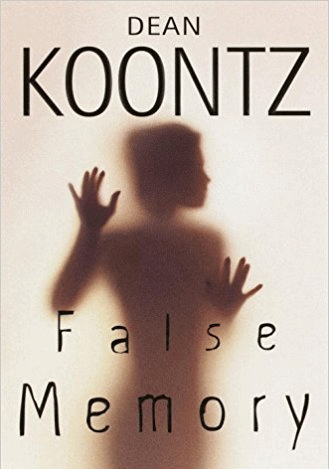

We will never do well at being someone we are not, but we can learn by from the excellence of others, first by observing, then copying, and finally by adjusting to become a better “me.”
The famous composer Mozart is known to have copied the masters in his early years. He didn’t stop with being “just as good” but kept working to get better.
A great practice for writers copies an exemplary paragraph from a bestselling author, studies its strengths and weakness, and then rewrites the paragraph to make it better.
Here’s a great paragraph from False Memory by Dean Koontz:
So powerfully did these thoughts course through his mind, the doctor was sure he must be crying. Holding the book with only his left hand, he raised his right to his dry cheeks, then to his eyes, but he was tearless. He was convinced, however, that he’d been close to tears, and he knew now that he possessed the capacity to weep if ever he experienced anything sad enough to tap his salty well.
Here’s how we might make it better:
The doctor’s thoughts were so emotionally moving, he was actually crying. He raised his hand to check his cheeks, then his eyes. No tears. But he was close to tears, wasn’t he? He had finally acquired the capacity to weep. Yes, he would weep—as soon as the clouds were dark enough to bring the rain.
Here’s the reasoning behind some of the changes:
- “Powerful thoughts” suggests a feeling of strength, but that misses the point. “Emotionally moving” is a better picture.
- That “thoughts course through his mind” is obvious. Can we have thoughts outside our mind?
- “The doctor was sure he must be crying” is an observer perspective. In his deep point of view, he wouldn’t say he was sure. He would say “he was actually crying.”
- The book isn’t important, so we can leave that part out, which increases the focus on what the psychotic doctor does to check for the tears that he’s never had before.
- “He was tearless” is a passive explanation. We intensify the impact by only stating the observation, without the was verb: No tears.
- “He was convinced, however, that he’d been close to tears” gives a conclusion. We do better to express the character’s question that points to the conclusion: But he was close to tears, wasn’t he?
- “He knew now that he possessed the capacity to weep” is strengthened by leaving out “he knew” and only stating what he knew: He had finally acquired the capacity to weep.
- Tears are soothing to the eyes until perspiration salt mixes with the tears and stings the eyes, which suggests that we might find a better metaphor than “salty well.” Perhaps we can use clouds dark enough to bring rain.




 Character is a critical key to becoming a person of quality, and it starts in the home!
Character is a critical key to becoming a person of quality, and it starts in the home!
While each of these suggestions points out one way of looking at this paragraph, for me the original paragraph carries more weight. The rewrite seems journalistic in its approach rather than literary. The original pulled me into the emotion of the writing more than the rewrite did. “Emotionally moving” is, for me, nowhere near as moving as “So powerfully did these thoughts…” It seems to me the entire paragraph is from an observer perspective, so changing to a deep point of view in the middle of it seems pointless to me.
For me, the concept of studying great writing to become a better writer means looking at great writing and seeing what makes it great, then applying those ideas to my own writing.
But as my mother used to say about differing opinions, “That’s what makes horse races!”